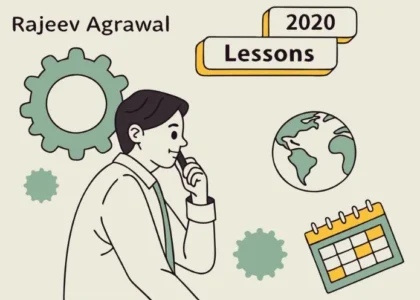I wrote an article on “What Matters in Investing”. In that article, I listed out the key aspects that are required to be successful in investing. In the next few articles, I will be doing a deep dive into each of these aspects. Today we will focus on the importance of filtering out noise. These articles will be structured to answer the following:
- Why? – Why Filtering out noise is important in investing
- How? – How do we develop appropriate filters
Why?
In an “always ON” world it is unthinkable to not be in the know of things. Besides, since information is power and many investors are looking for even minor edges to exploit, most of the investors try their utmost to be well-connected. Juggling between long-form reading, the scuttlebutt on investee companies, phone conversations, emails, instant chats, and social media accounts; not to mention investor queries may seem overwhelming. However, there may be a better way to invest – to filter out the noise. Here are the reasons:
- Focus on the right information: When we have too much information in our brain, it crowds out the important ones. An easy way to visualize this is through the analogy of a brain attic. Sherlock Holmes explains it best, “I consider a man’s brain originally is like a little empty attic, and you have to stock it with such furniture as you choose. A fool takes in all the lumber of every sort that he comes across so that the knowledge which might be useful to him gets crowded out… Now a skilful workman is very careful indeed as to what he takes into his brain attic. He will have nothing but the tools which may help him in doing his work, but of these, he has a large assortment and all in the most perfect order.”
- Allocate time to Thinking: Investing is not about having more information; it is what we do with that information. It is the insights that we glean from that information that allows us to build our variant perception. Investing, in my mind, is increasingly moving from having better information (it is harder and harder to get) to having better insights (it could be our competitive advantage as other investors focus on the minutiae). Warren Buffett’s quote on this topic comes to mind, “I insist on a lot of time being spent, almost every day, to just sit and think. That is very uncommon in American business. I read and think.”
- Build conviction: Digesting the information (step 1) and thinking/reflecting (step 2) lead us to the last step – building conviction (step 3). Conviction increases as our investments perform as per our expectations. The reverse is also true – not buying (I don’t short) other ideas and seeing the underperform also aids in building conviction. As our conviction in an idea increases, we can take advantage of the opportunities that Mr Market throws at us from time to time (rather than be swayed by them). It also helps us hold our position for a longer timeframe.
How?
While most investors realize that there is too much noise out there, they still get sucked in by the siren song. What, if anything, can an investor do to avoid getting sucked in? Here are some things that I find useful:
- Go to the source: While an idea for investment can from any multitude of sources, there is only one definite source to explore more about the company – the company’s filings. Going to the company filings eliminates biases of 3rd parties. However, one still has to account for the fact that companies will always present information in a way that puts them in the best light. This can be addressed by reading the filings in reverse chronological order and assessing what a company achieves versus what it says it will achieve.
- Use 3rd party sources to your advantage: Many brokerage and research houses provide research on a whole spectrum of things. This adds another level of noise – continuous buy and sell recommendations – that these firms spew out. Instead, it is best to use them for what they do best. In my experience, I find that they are an ideal source to get information on macro aspects – players in the industry, sector, country prospects, overall valuations, etc. – rather than company-specific aspects.
- Organize your day: I find that attacking highly demanding tasks when I am the most productive makes a big difference in what can be achieved in a day. So figuring out how our energy waxes and wanes during the day and then organizing our day accordingly, can dramatically improve our productivity. As a simple example, doing emails when we are on auto-pilot rather than in an active thinking mode is a good way to take care of emails without emails derailing our deep thinking.
- Don’t let social media overwhelm you: Social media is a great tool to learn from others and to share your learning with others. It is also a great way to build your tribe around things that matter most to you. However, just like any good thing, it needs to be practiced in moderation. It should be a source of joy rather than something that is getting out of control.
- Daily journaling: Journaling is a great way to capture our thoughts thus freeing our mind to move on to other important matters of the day. It has an added advantage. Re-reading these journals can provide us feedback on the outcomes, and, our thoughts and actions that led to those outcomes. Thus we can achieve better outcomes in the future by working on our thoughts and actions.
- Meditation: Lastly, noise doesn’t exist just out in the universe. It also exists inside each of us in the form of inner chatter. In fact, in some of us, the inner noise is so loud that we can’t hear anything else. One of the ways to calm this noise is to practice meditation. Meditation is increasingly being recognized for a whole swath of benefits – from calming our minds to generating world peace!
May peace and success be with you.
show less











